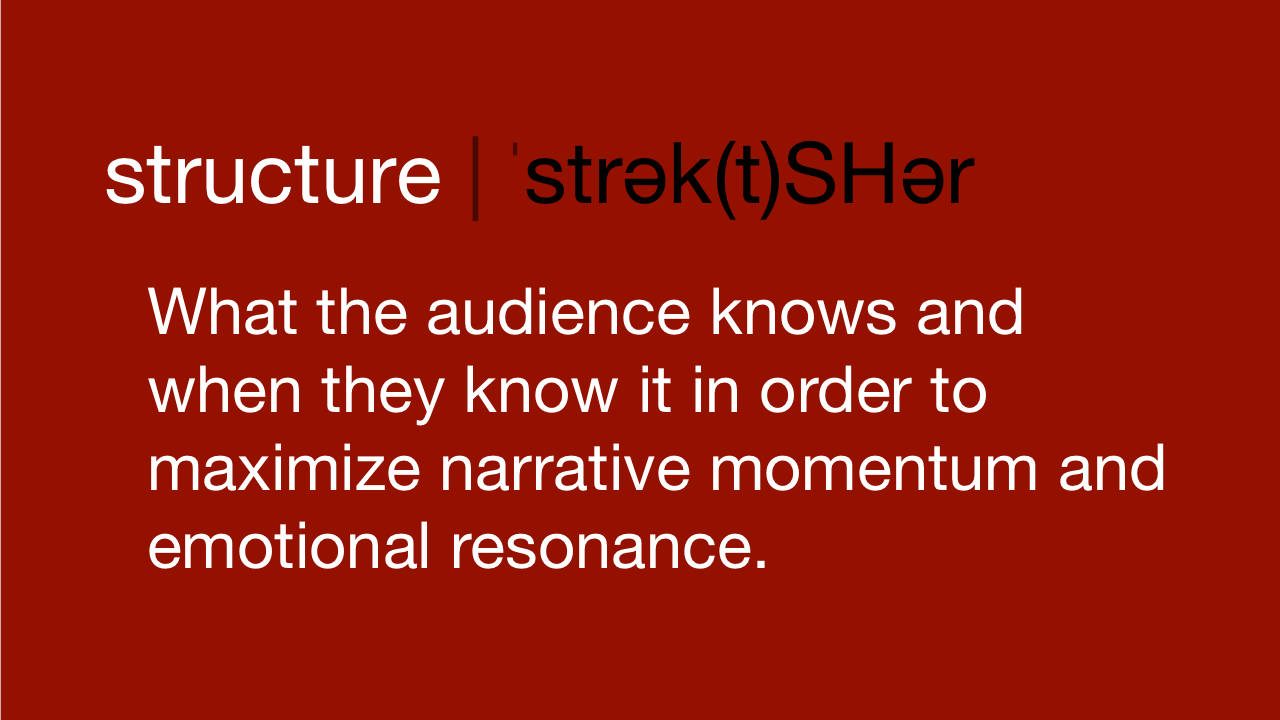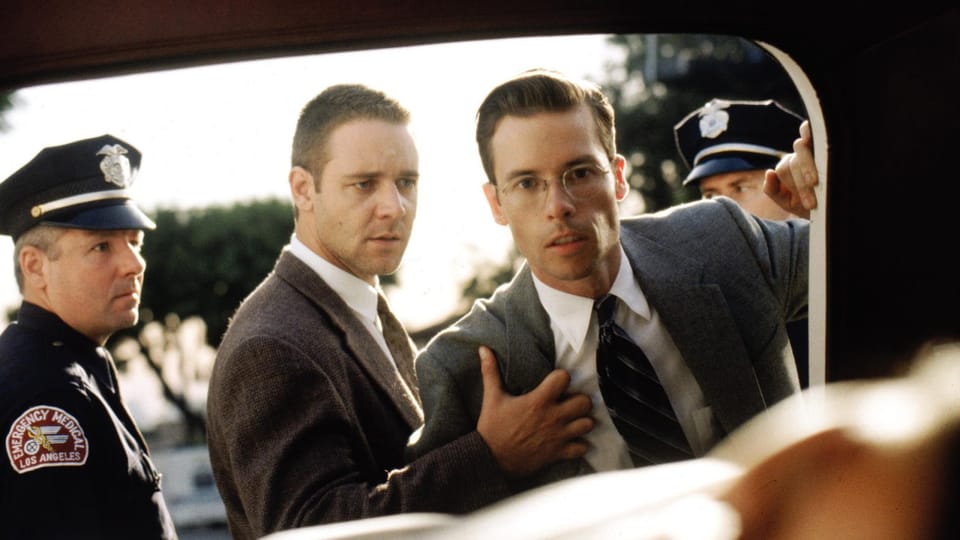How to interpret some of the most common screenplay notes.
Our response to a screenplay doesn't come in the language of structure. It comes in the language of emotional response.

The Story and Plot Weekly Email is published every Tuesday morning. Don't miss another one.
The question:
A student asked me last week how to incorporate what they learned in Mastering Structure into their current project.
This is a great question and totally understandable. Mastering Structure will open your eyes to a new yet simplified approach you'll want to implement immediately. It's exciting!
Ideally, it's at its best for new projects, where you can use the framework from the beginning. It makes your job much easier and frees you up to make more interesting and emotional choices.
Yet, it's not a prescriptive framework that you want to take older projects and ram them into.
For older projects, Mastering Structure works best to help you fix what isn't working.
Because you don't want to fix what ain't broke!
The definition of structure.
Structure: Choosing what the audience knows and when they know it in order to maximize narrative momentum and emotional resonance.
That's all it is. Choosing what the audience knows and when they know it.
Mastering Structure is the most consistent and reliable way I've found to achieve narrative momentum and emotional resonance, but it is not, by any stretch, the only way to do it.
If your project maximizes those two things, it is, by definition, well structured.
So, figure out what's not working first.
I wrote about finding different perspectives for the rewrite in an earlier Weekly Email HERE.
Once we figure out what isn't working, our knowledge of structure will often tell us why it isn't working and, therefore, how to fix it.
Most problems are structural. That is, we are sharing the wrong thing (or doing it poorly), or neglecting to share something and/or doing it at the wrong time.
This is more obvious in bigger scene questions like, "Where does this scene go?" but it is just as much a part of writing intimate scenes, too, "What does she say in response to him here?"
What the audience knows, and when they know it.
But our response to a screenplay doesn't come in the language of structure. It comes in the language of emotional response.
- I didn't like this.
- This didn't work for me.
- If I were you, I would do this...
The good news is that once we become more comfortable with story structure, we will know how to address these seemingly emotional notes.
Common notes and what they usually mean.
If you hear this note, ➡️ indicates the first place you should look to solve the problem. This is obviously not definitive; simply a good place to start.
* I wanted to utilize two columns, but mobile delivery made that risky! The format below is a little clunky, but it gets the job done.
Remember, screenwriting is problem-solving, and while some solutions are better than others, there are almost always multiple solutions.
- It took too long to get started. ➡️ The inciting incident is coming too late.
- It starts slow ➡️ Taking the “ordinary” in the “ordinary world” too literally.
- I didn’t care about the characters. ➡️ Act 1 needs work. Give special attention to the relationships.
- It took too long to know what it was about. ➡️ The central dramatic question comes too late.
- It felt like two different movies. ➡️ You changed the dramatic question.
- It felt too simple. ➡️ The supporting characters and subplots aren't bringing anything to the party.
- It just seems to plod along. ➡️ All plot, no story and/or not enough great scenes.
- It started well but dragged as it went on. ➡️ Weak midpoint.
- It’s slow. ➡️ Not enough great scenes and/or scene-to-scene narrative momentum failure.
- It’s all over the place ➡️ The story is not defined, and/or the plot lacks story discipline.
- I don't know what this is about. ➡️ The story is not defined, and/or the plot lacks story discipline.
- Nothing is unique here ➡️ You lack a concept that generates great scenes.
- You didn't take advantage of your own idea. ➡️ You have a concept, but you either lack great scenes or they're too generic and unrelated to the concept.
- It ended too quickly. ➡️ Act 3 was too short and unsatisfying.
- The ending wasn’t satisfying. ➡️ all plot, no story, and/or Act 3 wasn’t an answer/response to Act 1.
There are endless variations to all kinds of notes, and the skill comes from identifying the source problem. This is why we learn story structure.
Podcast Alert!
I was a guest on the podcast Screaming Into The Hollywood Abyss last week, and it was a total delight. The topic of this podcast is your failures and how they have affected you and your career.
Well, I've got plenty of failures!
We discuss my self-destruction early in my career and touch on topics like improv, getting rewritten, and my beloved Razzie nomination.
It's probably the most honest I have been about my own career.
That's a wrap for this week!
As always, thanks for subscribing.
See you next week!
Tom
The Story and Plot Weekly Email is published every Tuesday morning. Don't miss another one.
 Tom Vaughan
Tom VaughanWhen you're ready, these are ways I can help you:
WORK WITH ME 1:1
1-on-1 Coaching | Screenplay Consultation
TAKE A COURSE
Mastering Structure | Idea To Outline




